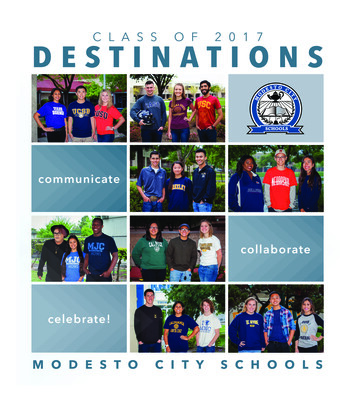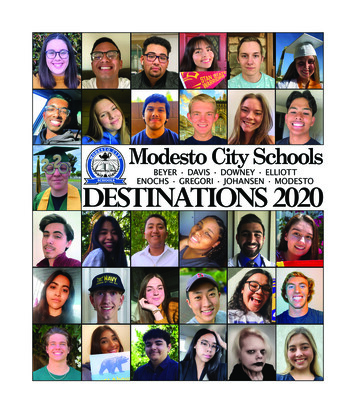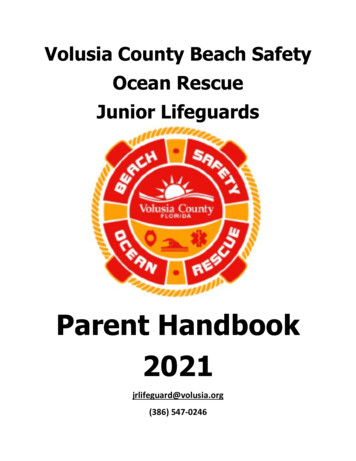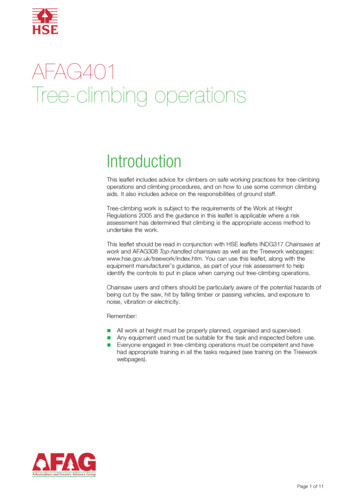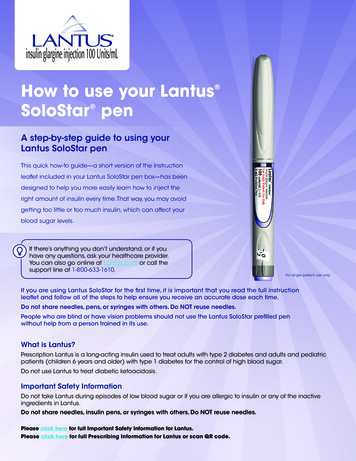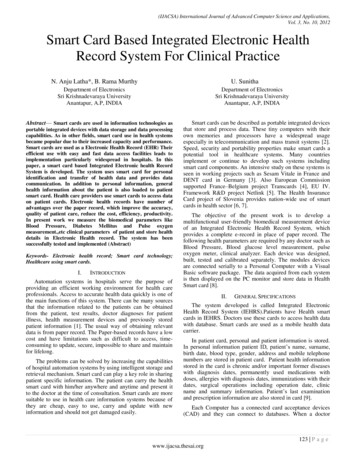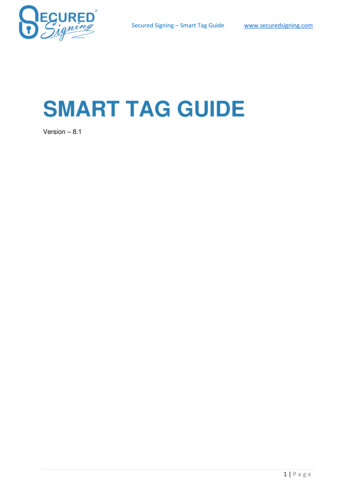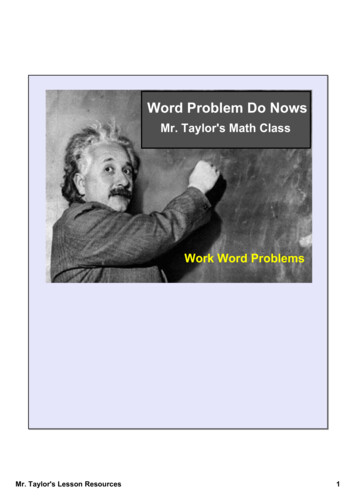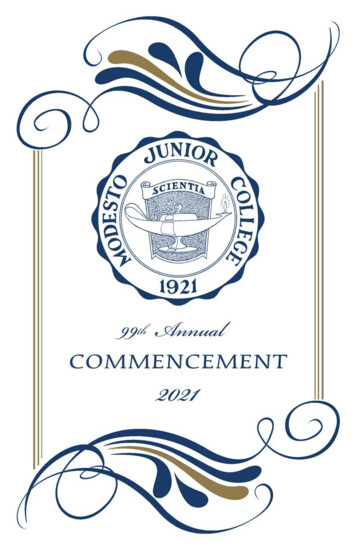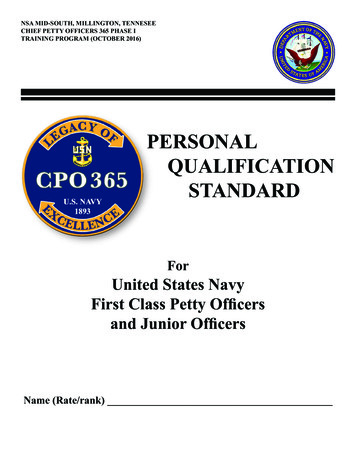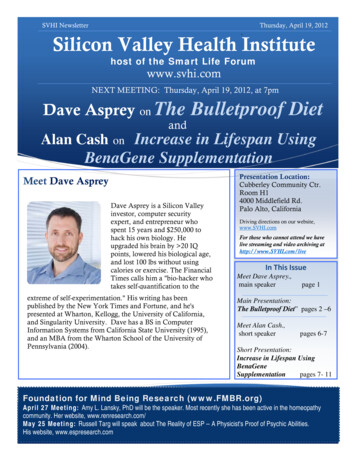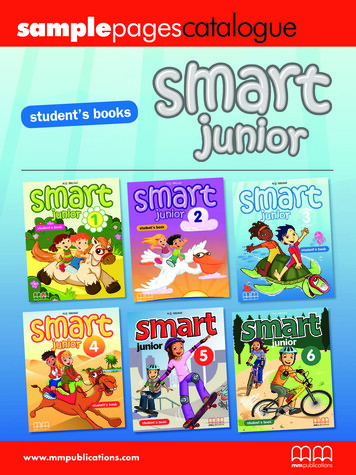
Transcription
samplepagescataloguestudent’s books
GetSmartwithSmart junior is a primary course that follows the modular approach andthe requirements of the Common European Framework of Reference.COURSE FEATURES: Well-balanced modules Units with songs, stories, factual texts A variety of activities (listening, speaking,games, short writing activities with grammarpractice and hands on activities) Revision units Comic-strip stories Smart world (cross-cultural information) Smart time (cross-curricular learning) Board games A play Portfolio with projects Pronics ActivitiesInteractiveWhiteboardmaterial2
Components for studentsAlphabet BooksFull-colourWorkbook & AudioCD/CD-ROMDVD ActivityBookGrammarand VocabularyStudent’s BookComponents for teachersTeacher’s Book with reduced-sizestudent’s pages, also includingtests & portfolio with projectsClass CDsFlashcardsTeacher’s ResourceCD/CD-ROM includingtests and extra materialGrammar and VocabularyTeacher’s BookDVDPosters
CONTENTS SMART JUNIOR 2CONTENTS SMART JUNIOR 1HelloI’m (Betty).What’s your name?My name’s (Ron).VOCABULARYGRAMMARVOCABULARYGreetingsNumbers 1-5Spell (‘book’).My name’s (Meg).What’s your name? I’m (Jack).What’s this? It’s a (bag).What’s that? It’s a (rubber).What are these? They’re (apples).What colour is it? It’s (red).GreetingsNumbers 1-10ClassroomobjectsColoursHow many (dolls)? (Two) (dolls). Happybirthday, (Meg).This is for you. Thank you.What are these? They’re (lollipops).What colour are they? They’re (pink).Are they (lollipops)?Yes, they are./No, they aren’t.ToysParty itemsColoursModule 1Module 1GRAMMARFamilyPetsModule 4SMART TIME 3How old are you? I’m (six).Are you (happy)?Yes, I am. / No, I’m not.You and me (He)’s (thin).Is (she) (sad)?Yes, (she) is. / No, (she) isn’t.Numbers 6-10AdjectivesModule 5SMART WORLD 4Toys andgames(Stand up).I have got a (kite).I haven’t got a (ball).Have you got a (robot)?Yes, I have. / No, I haven’t.ActionsToysModule 6SMART TIME 5My body(Touch your nose).(She) has got (two legs).(He) hasn’t got (big feet).Has (it) got (three eyes)?Yes, (it) has. / No, (it) hasn’t.Parts of theface /bodySMART WORLD 84Numbers (11-15)PetsAppearanceParts of thefaceFriendsAnimalsHow many (monkeys) can you see?I can see (three) monkeys.Can you (swim)?Yes, I can./No, I can’t.It can/can’t (talk).AnimalsActionsMy townThere is a (park).There are (two restaurants).Is there a (zoo) in your town?Yes./No.PlacesSMART WORLD 6Phonics Ss/s/FoodRooms of thehousePrepositions ofplaceFurnitureClothesMy favouritefoodWhat’s your favourite food?I like (meat).I don’t like (chips).I want (fruit).I don’t want (cola).Food and drinks(I’m) wearing (jeans).Is (she) wearing (glasses)?Yes, (she) is./No, (she) isn’t.ClothesSMART TIME 7Phonics ch/t /Module 8Module 8My house(I)’ve got (eleven kites).Have you got a pet (cat)?Yes, I have./No, I haven’t.(He) has got (fair hair).(She) has got (big ears).SMART TIME 5Phonics Pp/p/SMART TIME 7Where’s the (ball)?It’s (in) the wardrobe.Where are the (shoes)?They’re (under) the table.His (shoes are green).Her (shirt is yellow).Family andfriendsToysItems in ahouseSMART WORLD 4Phonics Tt /t/Module 7Module 7FoodHome andfamilyWho’s that? It’s my (sister).This is my (grandmother).Where’s the (puzzle)?It’s on/in/under the (wardrobe).Where are the (balls)?They’re (on) the (sofa).SMART TIME 3Phonics Ff /f/SMART WORLD 6I like (apples).I don’t like (beans).Two (bananas), please.Here you are.Thanks.Party time!SMART WORLD 2Phonics Ll /l/Module 3Family andfriendsWho’s that? It’s my (mother).This is my (dog).Is that your (sister)?Yes, it is. / No, it isn’t.Module 4Module 3SMART WORLD 1Module 2ColoursClassroomobjectsModule 5SchoolWhat colour is it? (Blue).What’s this? It’s a (pen).What’s that? It’s an (apple).Is it a (computer)?Yes, it is. / No, it isn’t.SMART TIME 1Phonics Bb/b/Module 6Module 2SMART TIME 1We’re back!ClothesSMART WORLD 8Phonics Jj/d /
CONTENTS SMART JUNIOR 4VOCABULARYGreetingsNumbers 1-10ColoursPeopleSchoolClassroom objectsModule 2SMART WORLD 1SMART TIME 1REVISION UNITS 1 and 2Let’s playUNIT 3I’m a manUNIT 4ImperativesIs it a.? Yes, it is. / No, it isn’t.This is a./ These are. (plurals)I’m a. / You’re a.He’s / She’s / It’s a.We’re / nsSMART WORLD 2SMART TIME 2REVISION UNITS 3 and 4That’s meModule 3UNIT 5I can playtennisUNIT 6Are you adjective? Yes, I am.No, I’m not.You aren’t adjective.Is he / she / it .?Yes, he / she / it is.No, he / she / it isn’t.Are we/they .? Yes, we / they are.No, we / they aren’t.I / he / she / it can.We / They can / can’t.Can you.? Yes, I can. /No, I can’t.Where’sToto?UNIT 8Module 6UNIT 10There’s / areIs / Are there .?Yes, there is / are.No, there isn’t / aren’t.PluralsHow many.?ActionsAbilitiesFamilyAppearanceParts of the bodyPossessionsREVISION UNITS 1 and 2FlyingUNIT 3Help!UNIT 4Present progressiveActionsTimeImperativePossessive adjectivesActionsJobs/ProfessionsSouvenirsLifeUNIT 5Present simpleAdverbs of frequencyWhat’s the time? It’s .TimeUNIT 6Present SimpleEveryday habitsTimeAnimalsBodyEveryday habitsDays of the weekMonthsOrdinalsSeasonsSMART TIME 3REVISION UNITS 5 and 6BOARD GAME 1Face and bodyFamilyRoomsFurnitureToysPlacesUNIT 7The basketUNIT 8Prepositions of placeHow much.?PlacesClothesNumbers 20-100PresentsDirectionsSome - AnyCutleryFoodSMART WORLD 4SMART TIME 4FoodTimeNumbers 11and 12TownMusicalinstrumentsNumbers 13-20REVISION UNITS 7 and 8She’s tallUNIT 9FasterUNIT 10Object pronounslike verb ingmust/mustn’tAdjectivesFree time rld factsSMART WORLD 5SMART TIME 5REVISION UNITS 9 and 10Present ProgressiveClothesActionsRevisionDays of the weekWeatherSMART WORLD 6SMART TIME 6REVISION UNITS 11 and 12BOARD GAME 2PLAY ‘Pot of Gold’CUT OUTSHave gota/anWhose.?SMART WORLD 3SMART WORLD 5SMART TIME 5REVISION UNITS 9 and 10A tall hatUNIT 11GoodbyeUNIT 12FamilyUNIT 2REVISION UNITS 3 and 4Module 5There’s azooColoursAdjectivesAbilitySMART TIME 2Module 6Module 5UNIT 9Present SimpleI like / I don’t like.Do you like .? Yes, I do.No, I don’t.What’s the time? It’s .becanSMART WORLD 2FeelingsAppearanceSea creaturesSMART WORLD 4SMART TIME 4REVISION UNITS 7 and 8I like applesIt’s arobotUNIT 1SMART TIME 1Module 4Module 4You’ve gotbig earsUNIT 7VOCABULARYSMART WORLD 1SMART WORLD 3SMART TIME 3REVISION UNITS 5 and 6BOARD GAME 1I’ve got / You’ve got.He’s / She’s / It’s got.Have you got.?Yes, I have. / No, I haven’t.Where’s .?Prepositions of placeWe’ve got / They’ve gotGRAMMARHELLOModule 1GRAMMARHello-GoodbyeWhat’s your name? I’m.How old are you? I’m.Who’s that? That’s my.What’s this? It’s a.What’s that? It’s a.Module 2HelloUNIT 1At schoolUNIT 2Module 3Module 1CONTENTS SMART JUNIOR 3He was scaryUNIT 11was - werePast simple: regularActionsAnimalsHistoryPlansUNIT 12Past simple: irregularGoing toPredictionsPlansSMART WORLD 6SMART TIME 6REVISION UNITS 11 and 12BOARD GAME 2PLAY ‘The fairy tale birthday’CUT OUTS5
Module 2Module 1STRUCTURESCONTENTS SMART JUNIOR 5Information Questions (What, Where, When)PeoplePresent Simple vs Present ProgressivePast SimpleFuture going toThe verb couldExploringPast ProgressivePast Simple - Past ProgressiveTime clause (when)VOCABULARYWords related to occupations: author, artist, reporter,newspaper, article, painting, interview, autographAdjectives: serious, well-known, fantastic, famousWords related to holiday: go hiking, go climbing, go camping,buy souvenirsVerb: sellNouns: drawing, neighbour, award, cartoonActions: rollerblade, type, send an e-mail, count,play the drums, fightVerbs: explore, look for, dig, relax, knock, hold, hearNouns: palm tree, rock, picnic, chestExploration: voyage, captain, iceberg, mapSMART WORLD 1Module 4Module 3Comparative formsas adjective asTry hardSuperlative formsWhichAdverbs of mannerComparison of adverbsUp highRelative pronouns: who, which, thatNouns: continent, the underground, bungee jumping,skyscraper, portrait, line, athlete, medal, winner, ring, mascotVerbs: practise, train, light a flameAdverbs of manner: hard, softly, deepWater sports: scuba diving, parasailing, surfing, water-skiingFeatures of nature: wave, airUnits of measurement and time: metres (m), centimetres (cm),minutes (min), seconds (sec)Nouns: hole, tiny, MP3 player, mammals, insect,washing machine, machine, person, thingVerbs: hunt, use, direct, invent, take place, dryAdverb: backwardsOccupations: stuntman, window washer, director, actressAdjectives: empty, dirtyFood: pieCookware: panThe myth about Icarus: inventor, feather, wax, melt, drownModule 5SMART TIME 1much / many / a lot of /lots of / a few / a littleIt’s naturalHow much.?How many.?How long.?Module 6Both / NeitherOne and all Compounds of some / any / no / everyWords related to plants: soil, seed, greenhouse, root, sunlightVerbs: add, grow, cut down, disappear, buildWords related to bees: beekeeper, beehive, honey, sting,honeycomb, nectarWords related to animals: endangered species, deerMeasurement: weight, pound, lengthAdjectives: spotted, extinct, male, femaleWords related to the world around us: environment, turn off,tap, organisation, road, oxygen, woodFood: nutsNouns: channel, remote control, TV guide, mechanic,informationWords related to theatre: stage, performanceWords related to competition: talent, balance, hide,competitionModule 8Module 7SMART WORLD 2Let’s helpFuture willPrepositions of movementDirectionsWhat’s up? The verb Maylike / love / enjoy / hate -ing formSMART TIME 26The adverb MaybeVerbs: raise money, reach, put away, lift, come true, cheat, lie,make fun ofNouns: karaoke, go-karting, raffle tickets, big wheel, pills,vitamins, transport, chores, wish, illness, modern buildings,charity, friendship, share,myth, legendAdjective: second-handNouns: bridge, windmill, tunnel, hill, manners, rules, seat,feeling, line, wax model, politician, fashion model, staffVerbs: respect, borrowAdjective: amazedHobbies: drama class, arts and crafts, play the violin,backpackingPlaces: chemist, fire station, post office
CONTENTS SMART JUNIOR 6Module 2Module 1STRUCTURESPresent Simple (adverbs of frequency)School andworkPresent ProgressivePast SimplePast ProgressiveFuture going toObject pronounsFaces andplacesVerbs with two objectsShould / Shouldn’tImperativeVOCABULARYWords related to leisure activities: spare time, hobby, make model.,collect comic booksAdverb: earlyChores: dust, take the kids to school, mop, ironVerbs: check e-mail, deliver letters, change, order, look after, train, sewNouns: office, postman, typist, team, band, babysitter, concert, furniture, factory,stick, problemAdjectives: naughty, strict, friendlyMaterials: cotton, leather, strawAdjectives: colourful, polite, impoliteNouns: sandals, cloth, classmates, waltz, chat room, tradition, chopsticks, gift,wrapping paper, formal dinner, dessertspoon, napkin, lap, snow sculpture, slide,lorry, statue, maze, towerActions: shake hands, hug, kiss on the cheek, light upPhrase: be on timeModule 4Module 3SMART WORLD 1AdventuresPresent PerfectHave you ever .?Yes, I have./No, I haven’t.I’ve never .How long have you .?I’ve . for / since .I’ve . so far.I haven’t . yet.It’s / They’re made of .MaterialworldPassive Voice (Affirmative)(Questions-Negative)It’s / They’re used for .Nouns: parents, dream, experience, contest, eagle, climbing boots, nest, helmet,mountain, trip, Boy Scout, nature, badge, uniform, first aid, dummy, studio, wildanimals, delivery boy, special effectsVerbs: try, win, travel, remember, scream, surviveAdjectives: different, hauntedAdverb: outsideOutdoor activities: rock climbing, white-water rafting, horse riding, make a shelter,cook over a campfireMaterials: silk, wool, silverJewellery & accessories: belt, chain, ring, watchBody part: neckNouns: mixture, ingredients, flavour, teapot, headphones, telescope, sponge, pot,scissors, toothbrush, note, stone, shapes, credit cardVerbs: mix, freeze, melt, produce, become, look likeFood and drink: coffee, corn, avocado, vanillaAdjectives: amazing, roundModule 5SMART TIME 1Used to (Affirmative)LookingbackUsed to (Negative)Used to (Questions)There used to be .Module 6-ing as subject of verbsThe fourcorners ofthe Earthgo, start, hate, can’t stand, love, like,enjoy, good at -ingtoo adjective full infinitiveadjective enough full infinitiveComparison(not) as adj asWords related to prehistoric times: animal skin, humans, mammoth, spear,barefoot, thousand, prehistoricPlaces: neighbourhood, garden, flat, hotel, grocer’s shop, motorwayAdjectives: huge, quiet, luxuryVerbs: show, hang out, cheer up, miss, surf the Net, miss, careMeans of transport: carriage, streetcarNouns: population, laptop, band, trumpet, pocket money, country, entertainment,cocoaWords related to the Aztecs: canal, lake, warrior, jaguar, chilli peppers, century,capital, exist, enemyWords related to the poles: polar bear, West, North, East, South, poleAdverb: lonelyVerbs: believe, search, shout, pushNouns: top, bottom, middle, storm, rope, sailing boat, hot-air balloon, jeep,mountain biking, tour, clue, fountain, submarine, university, temple, frogAdjectives: slippery, rough, calm, seasick, alone, large, poisonous, tiring, safeWords related to the Amazon Rainforest: tropical rainforest, frog, climate,temperatureNumbers: millionModule 8Module 7SMART WORLD 2Prepositions of time(on, in, during, from . to ., after)Fine artsRelative clauses (who / that)Relative clauses (that / which)Relative clauses (where)Will time clausesGo green!may / mightConditional sentences Type 1Nouns: sculptor, circle, square, art gallery, member, fan club, building, garden,steel, brick, sphere, architect, view, microwave, acrobat, exhibition, show,magician, clown, security guard, guide, potteryAdjective: talentedKinds of music: pop, rock, jazz, hip hop, classicalVerbs: sculpt, hold, sign, design, heat, connect, whisperPhrases: do tricks, stay close, play a trickVerbs: destroy, pollute, bring, grow up, save, hurry up, protect, kill, breathe, turninto, plant trees, smile, cheat, copyNouns: land, environment, shore, seal, fin, pollution, fumes, acid rain, publictransport, bicycle lane, traffic, health problem, government, solar panel, judge,garage, starting line, energyAdjectives: alive, harmful, excited, fairAdverbs: less, instead, suddenlySMART TIME 27
8parrotmonkeyhippoHow many hippos can you see?I can seeOne hippo, no, two hippos.How many parrots can you see?I can seeEight parrots, eight parrots.How many monkeys can you see?I can seeTen monkeys, ten monkeys.AnimalsFind and stick. Listen to the song and match. Then sing.Animalscatchy song introducing new languageSmart Junior 2 SB U5.indd 42-43421. Turn to the back of the book, find the appropriate stickers and stick them in the picture. Listen to the song and match the wordsin red to the corresponding animal. Then sing the song.151aVocabulary presentedwith clear illustrationsSample pages from SMART JUNIOR 2 - Student’s BookLessons focusing on presenting new languageb8c315I can see threemonkeys.d4320/3/2015 1:29:05 µµ2. Listen to the CD and match the animals to the correct number.3. In groups, draw different animals on a piece of card / white paper. Stick two drawings on the board and play in two groups.3 Play.11a2 Listen and match.speaking activity topractice new language
944Can you fly?Wow!Hello!run3Yes, I can.Achoo!1Hello!Listen, point and repeat.swimCody.It’s you!fly2Yes, I can.4Cody. It’s you!talkCan you talk?1. Listen to the dialogue, point to the corresponding frame and repeat each sentence.1Smart Junior 2 SB U5.indd 44-45storyline withattractivecharactersin everydaysituations5bSample pages from SMART JUNIOR 2 - Student’s BookLessons focusing on presenting new languageaabb42aaYes, I can.talkswimrunflyYoubbYourfriend4520/3/2015 1:29:39 µµ2. Listen to the CD and circle one of the two pictures.3. Place a tick ( ) for the actions you can do and a cross ( ) for the ones you can’t do. Then ask and answer with your partner, asin the example.Can you swim?3 Tick ( ) or cross ( ). Then ask and answer.312 Listen and circle a or b.listening activity
10penguin 13crocodile2jump 4 1. Listen to the CD, point to the corresponding picture and repeat each sentence.46elephantListen, point and repeat.Smart Junior 2 SB U5.indd 46-47factual textpresentingaspects of thereal world15cSample pages from SMART JUNIOR 2 - Student’s BookLessons focusing on presenting new language4720/3/2015 1:29:59 µµIt’s a parrot.dc2. Listen to the CD and number the pictures according to what each animal can do.3. In pairs, take turns to say what each animal can do and guess the animal.It can talk.3 Guess.ba2 Listen and number (1-4).
11climbtortoiselionzebra1. In pairs, take turns to throw a paper clip / rubber on the pictures. Say a sentence about what each animal can’t do according tothe picture.48Let’s play?Play.Smart Junior 2 SB U5.indd 48-49enjoyablegamesenablingSs to vividlyexperienceand retainnew language1515abSample pages from SMART JUNIOR 2 - Student’s BookLessons focusing on consolidating previously taught language5zebra2lionRead and circle.crocodileLook and write.716parrotYes / NoYes / NoYes / NoYes / NoYes / NoYes / Notortoise1. Look at the photos and complete the crossword with the names of the animals.2. Read the sentences and circle Yes if the sentence is true or No if it’s false.1 A lion can run.2 A penguin can fly.3 An elephant can jump.4 A crocodile can’t swim.5 A zebra can’t talk.6 A monkey can climb.214elephant3penguinRevision20/3/2015 1:30:16 µµ495revision
12Show and tell.1Make an animal mosaic.ProjectThis is my lion.It can run, jumpand swim.It can’t fly.Smart Junior 2 SB U5.indd 50-51501. Draw an animal, cut different shapes out of coloured card and glue them on the animal.2. Present your animal mosaic by saying what it can/can’t do.presentation ofprojects recyclinglanguage in anauthentic andmeaningful way21532abIt can’t talk.cdIt can’t swim.It can’t fly.eIt can jump.f5ag5120/3/2015 1:30:42 µµhIt can’t run.It can climb.It can fly.Read and find the way to the lake.time 5CESCIENcross-curricular learning1. Read the sentences and follow the animal that each one describes. The animals will lead you to the correct path to the lake.1Sample pages from SMART JUNIOR 2 - Student’s BookLessons focusing on consolidating previously taught language
13clearlystagedstepby-stepguidelinesfor eachactivityrevision ofthe previouslessonthrough agameTrack 6Yes, I can.No, I can’t.can’t cannotCan you swim? Refer Ss to the Grammar box (5b) onp.92. Have Ss look at the presentation andask them what animals they can see(a parrot and Cody). Ask Ss (in L1) to tell you what they thinkis happening. (Jack and Meg are in apet shop and they find a parrot there.The children think that the parrot cantalk but it’s Cody who is actually talking.The children realise that it’s Cody whenhe accidentally sneezes and the parrotrepeats Meg.) Ask Ss to point to the bubbles andfollow along as you play the CD. Play the CD once more, pausing aftereach sentence for Ss to repeat. Model acting out the dialogue withthree Ss. Choose four Ss to act it outfor the class. Then have Ss act out thedialogue in groups of four.1Smart Jun 2 TB U5.indd 66-6766Track 5 Point out the actions in the vocabularysection on page 44. Play the CD a fewtimes and have Ss point to them andrepeat. Say the actions again in random orderand have Ss repeat and point.Vocabulary Pretend you are swimming and say,swim. Get Ss to repeat the word andmime the action at the same time. Do the same with the rest of the verbs(talk, run, fly). Stick the flashcards of the actionson the board, point to each oneand encourage Ss to say the actiondepicted on them and mime it at thesame time.Warm up Play the song Animals from theprevious lesson (SB p.42, Track 3) andencourage Ss to sing along. Ask Ss to mime the animals whilethey’re singing the song.RevisionAim To identify actions.To ask and answer questions aboutability.Vocabularyswim, run, talk, flyStructuresCan you (swim)? Yes, I can./No, I can’t.51ab44Can you fly?Wow!Hello!run3Yes, I can.Achoo!1Hello!Listen, point and repeat.swimCody.It’s you!Smart Junior 2 SB U5.indd 44 Run on the spot and say, I can run.Pretend you are trying to fly and say,I can’t fly. Get Ss to repeat the sentences afteryou. Stick the flashcards on the board,point to one, e.g. run and ask a S,Can you run? Encourage him/her toanswer, Yes, I can. Write the questionand the answer on the board. Ask a different S, Can you fly?Encourage him/her to answer, No, Ican’t. Write it on the board, too. Direct Ss’ attention to the grammarbox, read the question and thefly2 Explain to Ss that they will listen to theCD and they have to circle the correctpicture according to whether thesepeople/animal can or can’t do the2answers aloud and have Ss repeat. Elicit that we use the verb can toexpress ability. Point out that can’t is the short formof cannot. Ask Ss different questions using, Canyou.? Encourage them to answer,Yes, I can./No, I can’t.426/3/2009 11:52:31 ðìYes, I can.Cody. It’s you!talkCan you talk?1. Listen to the dialogue, point to the corresponding frame and repeat each sentence.15blist of objectives, vocabulary andstructures introduced in each lessonabb42aaYes, I can.talkswimrunflyYoubbYourfriend45Yes, I can.No, I can’t.Yes, I can.No, I can’t.audioscripts andkey to activities1. Can you run?2. Can you swim?3. Can you talk?4. Can you fly?Tapescript Track 7action depicted in the pictures. Play the CD and have Ss do the activity. Have Ss compare their answers inpairs first, then check as a class.Smart Junior 2 SB U5.indd 452. b4. b26/3/2009 11:53:47 ðì Direct Ss’ attention to the girls in thephoto and ask them to guess whatthey are doing. (They are looking at thetable in activity 3 and they are askingquestions about what actions they cando.) Read the exchange and have Sschorally repeat it. Have individual Ssmodel the exchange.31. a3. b2. Listen to the CD and circle one of the two pictures.3. Place a tick ( ) for the actions you can do and a cross ( ) for the ones you can’t do. Then ask and answer with your partner, asin the example.Can you swim?3 Tick ( ) or cross ( ) . Then ask and answer.3a2 Listen and circle a or b.1Sample pages from SMART JUNIOR 2 - TEACHER’s BookDon’t break the chainNote67instructionsand key toWorkbookactivitiesoptionalactivitiesmaking thelesson moreenjoyable andgiving furtherpractice20/3/2015 1:38:09 µµPhotocopy the flashcards (elephant,penguin, hippo, crocodile, cat, dog,snake, rabbit, parrot, monkey), oneset for every four Ss for the nextlesson.Key 1. can 2. can’t 3. Can 4. can’tanswers with the correct form of theverb can.2. fly4. run2 Ss complete the questions and short3. swimKey 1. talkverbs.1 Ss match the pictures to the correctWorkbook This is a variation of the game Simonsays. Ask Ss questions using, Can you.?and encourage them to mime theaction. The Ss must not perform theaction if it isn’t preceded by the wordsCan you e.g. Can you run? If a S does so, he/she is out of thegame. The last S remaining in the gamewins. The winner can ask thequestions in the next game.OPTIONAL Direct Ss’ attention to the table andread the verbs aloud. Explain to Ss thatthey have to place a or a in theboxes under the You column accordingto whether they, themselves, can/can’tdo the actions. When all Ss have completed the boxesabout themselves, divide them intopairs. Ss take turns asking each otherquestions using, Can you and theverbs given. Ss place a or a in theboxes under the Your friend columnaccording to their partner’s answers. Have pairs of Ss present the exchangeto the rest of the class.
Sample pages from SMART JUNIOR 2 - WORKBooka variety of activites44cRevisionLook and write.1IYouHe4Project31 Draw your best friend. Then write andsay.She1‘ve got brown hair.2‘ve got blue eyes.3has got green eyes.4has got black hair. Look and circle Yes or No.2My best friend’s name isRobbyMay1 He has got big ears.Yes / No2 He has got a pet dog.Yes / No3 He has got a small mouth.Yes / No1 She has got a big nose.Yes / No2 She has got a pet cat.Yes / No3 She has got black hair.Yes / No1. Look at the pictures and complete the sentences with the correct personal pronouns.2. Read the sentences, look at the pictures and circle Yes if the sentence is true or No if the sentence is false.1. Read the text about Meg’s friend. Draw your best friend and write about him/her. Present your work to the class.3031Smart Junior 2 WB U4.indd 3120/3/2015 4:50:39 µµboardgame consolidating previously taught languageself-assessment section fostering learner autonomyNow I canBoard game 1-4START1111012elevenSay thenumber!Spell!Say and tick ( ).Where arethe dolls?Whatare these?Where’sthe puzzle?twelve12catSaythe number!Saythe colours.How manyyo-yos?1534143dogfair hairsnake4rabbitnoseYes,he has.brown hairearShe hasgot.moutheye4 Say and tick ( ).How manysnakescan you see?Where arethe balls?1Spell!Are theylollipops?Say!Smart Junior 2 WB BoardGame 1-4.indd All Pages15fifteen3 Say and tick ( ).He has gota pet.Hashe got.?14fourteen2 Say and tick ( ).What’sthis?Say!13thirteen!2Have you got a pet cat? I’ve got a petNo, I haven’t.rabbit.1. Say the numbers and tick the circles.2. Say the pets and tick the circles.3. Say the parts of the face and tick the circles.4. Say the sentences and tick the circles.FINISH3520/3/2015 1:41:58 µµSmart Junior 2 WB U4.indd 333She has got small earsand a big mouth.3320/3/2015 1:43:34 µµ
154eggdogfish3E E E EWrite.Look and match.EFF f Ff Ff Ff Ff FfEe ED d Dd Dd Dd Dd DdListen, repeat and trace.Dd2fisheggdog1tracing activitySample pages from the ALPHABET Book54Hello!SingdogFind the stickers.Hello, hello, hello!I’m a dog.Hello, hello, hello!My name is Tod.What's your name?What's your name?Sing.eggcatchy songsfish5
Sample pages from SMART JUNIOR 1 - Student’s book3b2 Listen and circle.1Listen, point and repeat.storyline withattractivecharactersin everydaysituations1123423 Play.gameproviding ameaningfulcontext forpractice431. Listen to the CD, point to the corresponding frame and repeat each sentence.2. Listen to the CD and circle one of the two pictures.3. Ask and answer questions about the family photos, SA: Who’s that? SB: It’s my father.2425Smart Junior 1 U3.indd 24-2520/3/2015 1:54:42 µµSample pages from SMART JUNIOR 3 - Student’s booklistening activity3a1Let’s playstand upLook and listen.sit down3Simon says,‘sit down!’1Yeah!!Sit downStand up4Listen and number (1-4).RunStand up.Simon says,‘stand up!’storyincludinglivelydialoguesabcd2Simon says,‘run and climbthe slide!’Wow!3524Simon says,“run!”Playa game.Listen and repeat.20Smart club A U3.indd 20-2116slideLook and write.StopLet’s play, Simon says!climbstoprunfun activities practisingthe new language in anenjoyable way2120/3/2015 1:56:41 µµ
Sample pages from SMART JUNIOR 4 - Student’s ook and listen.eggsknifeThere are somecherries, some strawberries andpeaches. Oh, and there are someeggs and tomatoes, too!Look, apicnic basket.47Look and write.basketstrawberriesAnd some plasticplates and cups.1What’sinside?Listen and match the items withthe children.124TimAre there anysandwiches?I’m hungry.Look! Here’sa photo. Let’s findthis girl.OK! Mel! Mel!Oh, Mel!256385 Look!5cherry Ý cherriestomato Ý tomatoesknifeÝ knivesAre there any bananas?There aren’t any bananas.Listen and repeat.26Look at activity 1 and circle T for True or F for False.1 There are some plates and cups in the basket.TF2 There aren’t any strawberries in the basket.TF3 There are some sandwiches in the basket.TF4 There aren’t any cherries in the basket.TFAre there any cherriesin your basket?No, there aren’t.Yes, there are.Complete with some or any.1 There aretomatoes in the bag.2 There aren’tplates on the table.3 There aren’teggs in the basket.4 Are thereknives in the bag?5 There arepeaches on the table.6 Have you got626Play a game.Are there any peaches in your basket?There’s a banana.There are some bananas.No, Mel. But thereare some bananasover there.34HelenBut. whosebasket is it?a readingcomprehensionactivity3sandwiches?63Smart club U8.indd 62-6320/3/2015 1:59:50 µµSample pages from SMART JUNIOR 4 - Student’s booktexts giving cultural and cross-curricular informationtime 4world 4Listen and repeat.1tennis2tennis playerchampionListen, read and match.In England tennis is very popular.Every year, in the last week of Juneand the first week of July, peoplefrom all over the world go toWimbledon, near London.They see the world’s best tennisplayers. After two weeks of tennis,there are two tennis champions. VisitWimbledon, the home of tennis andsee these things:32Listen and repeat.2Listen and read.cream1Umbrellas!Sometimes it rainsat Wimbledon, sotake an umbrella!What sport is popularin your country?1glassAmetalplasticRecyclingis collecting things and using them again. Recyclingis good for the environment. We can recycle glass,paper or metal. So, don't throw away your oldnewspapers, empty bottles, cans or yourold mobile phone in the rubbish. There arerecycling bins in many places. They aredifferent colours. Recycling is easy andfun!BStrawberriesand cream. Everyoneeats it there.3Tennis players alwayswear white clothes atWimbledon.paperceScien3We canrecyclepaper 8times!What are they made of? Match. Then, tick ( ) the items we can recycleand cross ( ) the ones that we can’t.CRead and write T for True or F for False.1 Wimbledon is in England.32 Tennis players wear white clothes.23 Tennis players always have an umbrella.44 Wimbledon begins in the winter.68Smart club B Magazine 4.indd All Pages1675896920/3/2015 2:02:51 µµ17
Sample pages from SMART JUNIOR 5 - Student’s b
SMART TIME 2 Module 8 Module 7 Module 6 Module 5 Module 4 Module 3 Module 2 Module 1 CONTENTS SMART JUNIOR 5 6. STRUCTURES VOCABULARY School and work Present Simple (adverbs of frequency) Present
